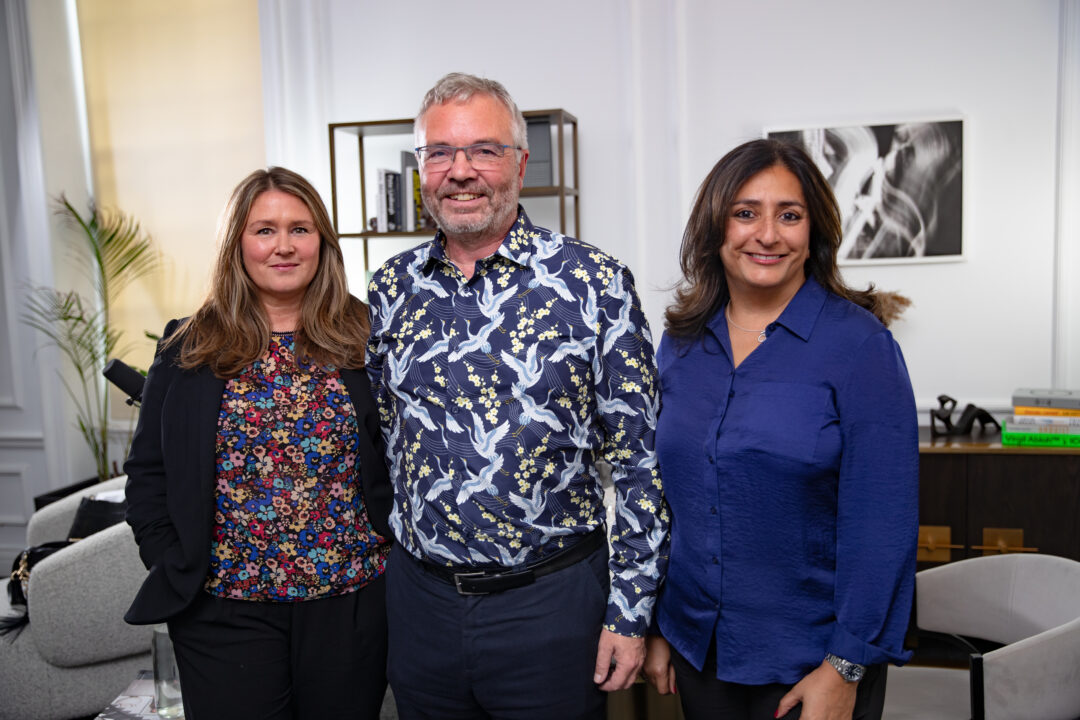Latest Posts

The Imperative of ESG Compliance: Safeguarding Brands in the Modern Legal Landscape
In an era where corporate responsibility is under intense scrutiny, brands are increasingly recognising the importance of aligning their practices with Environmental, Social, and Governance (ESG) standards. From a legal perspective, ensuring ESG compliance is not merely a moral or ethical obligation; it is a strategic imperative that safeguards brands against legal and reputational risks. This article explores the reasons why brands must prioritise ESG compliance to navigate the complex legal landscape effectively.
1. Mitigating Legal Risks
The legal landscape is evolving rapidly, with governments worldwide implementing stricter regulations to address environmental concerns, promote social justice, and enhance corporate governance. Non-compliance with these regulations can lead to severe legal consequences, ranging from fines and penalties to litigation. By prioritising ESG compliance, brands can proactively address these legal risks, ensuring that their operations align with evolving legal standards.
2. Protecting Reputation
A brand’s reputation is one of its most valuable assets, directly influencing consumer trust and loyalty. Non-compliance with ESG standards can lead to reputational damage, resulting in a loss of customer confidence and loyalty. Moreover, in the age of social media and instant communication, negative news about a brand’s environmental impact, social practices, or governance issues can spread rapidly, causing long-lasting harm. ESG compliance acts as a shield, helping brands not only meet societal expectations but also protect their reputation in an increasingly interconnected world.
3. Attracting Investment
Investors are becoming increasingly discerning about where they allocate their capital, and many are integrating ESG considerations into their decision-making processes. ESG compliance signals to investors that a brand is committed to sustainable and responsible business practices, reducing investment risk. Brands that prioritise ESG initiatives are more likely to attract socially conscious investors, leading to increased funding opportunities and a positive impact on shareholder value.
4. Enhancing Stakeholder Relationships
ESG compliance goes beyond regulatory obligations; it reflects a brand’s commitment to its stakeholders, including employees, customers, suppliers, and the communities in which it operates. Prioritising environmental sustainability, social responsibility, and strong governance practices fosters positive relationships with stakeholders. This can lead to increased employee satisfaction, customer loyalty, and improved supplier and community relations – all essential components of a thriving and sustainable business.
5. Future-Proofing Business Operations
As global concerns about climate change, social inequality, and ethical business practices intensify, ESG compliance is emerging as a fundamental aspect of future-proofing businesses. Brands that integrate sustainable and responsible practices into their operations are better positioned to adapt to changing regulatory landscapes and societal expectations. By staying ahead of the curve, these brands can navigate legal challenges more effectively and maintain a competitive edge in the market.
Conclusion
ESG compliance is not just a moral obligation; it is a strategic imperative for brands in today’s legal landscape. By prioritising environmental sustainability, social responsibility, and strong governance practices, brands can mitigate legal risks, protect their reputation, attract investment, enhance stakeholder relationships, and future-proof their business operations. As legal advisors, we recognise the importance of ESG compliance for clients, and work to guide them towards a sustainable and resilient future.
To discuss any of the points raised in this article, please contact Ann-Maree Blake or fill in the form below.
Read More
Decoding ESG: Unravelling The Buzzwords
In the realm of modern finance and corporate governance, few acronyms have gained as much prominence and significance as ESG. Standing for Environmental, Social, and Governance, ESG has become a cornerstone of responsible investing and business practices. However, within this framework, a plethora of buzzwords and jargon often perplex both investors and executives alike. Understanding the meaning behind these buzzwords is crucial for navigating the complex landscape of ESG. Let’s delve into these terms to demystify them:
Environmental:
Carbon Footprint: This term refers to the total greenhouse gas emissions directly or indirectly caused by an individual, organisation, event, or product. Companies aim to reduce their carbon footprint through initiatives like using renewable energy, optimising transportation, and improving energy efficiency.
Climate Risk: Climate risk encompasses the potential negative impacts of climate change on businesses, such as extreme weather events, regulatory changes, and shifts in consumer preferences. Evaluating and mitigating climate risk is essential for long-term sustainability and resilience.
Biodiversity: Biodiversity refers to the variety and variability of life on Earth, including ecosystems, species, and genetic diversity. Preserving biodiversity involves protecting habitats, preventing species extinction, and promoting sustainable land use practices.
Water Stewardship: Water stewardship involves responsibly managing water resources to ensure their availability and quality for present and future generations. This includes reducing water usage, preventing pollution, and supporting access to clean water in communities.
Social:
Diversity and Inclusion: Diversity refers to the presence of differences within a given setting, such as race, gender, ethnicity, sexual orientation, age, and more. Inclusion involves creating a supportive and respectful environment that values and leverages diverse perspectives and experiences.
Human Rights: Companies are increasingly expected to respect and uphold human rights across their operations and supply chains. This includes employment rights, fair wages, workplace safety, and the prevention of human rights abuses.
Community Engagement: Engaging with local communities is crucial for building trust and fostering positive relationships. This can involve philanthropy, volunteering, stakeholder consultations, and supporting community development projects.
Employee Well-being: Employee well-being encompasses physical, mental, and emotional health and satisfaction within the workplace. Promoting work-life balance, providing wellness programs, and fostering a supportive culture contribute to employee well-being.
Governance:
Board Diversity: Board diversity refers to the representation of different demographic groups, backgrounds, and skill sets among corporate board members. Diverse boards are believed to make better decisions and enhance corporate performance.
Ethical Leadership: Ethical leadership entails making decisions that are morally and legally sound, prioritising transparency, integrity, and accountability. Leaders set the tone for organisational culture and behaviour.
Executive Compensation: Executive compensation refers to the financial incentives, including salaries, bonuses, and stock options, provided to top executives. Aligning executive pay with long-term sustainable performance is a key governance concern.
Anti-Corruption: Anti-corruption measures aim to prevent bribery, fraud, and other forms of unethical conduct within organisations. Implementing robust compliance programs and fostering a culture of integrity are essential for combating corruption.
In addition to these components, understanding the concept of the value chain is paramount in the context of ESG. The value chain encompasses the entire lifecycle of a product or service, from the extraction of raw materials to the disposal or recycling of end products. Assessing and optimising the environmental, social, and governance impacts at each stage of the value chain is integral to achieving holistic sustainability goals.
Comprehending these buzzwords and their implications is merely the initial step. Effectively integrating ESG principles into business strategies requires ongoing commitment, rigorous measurement, and transparent reporting. By embracing ESG practices, companies can not only mitigate risks and comply with regulations but also unlock opportunities for innovation, long-term value creation, and positive societal impact. As ESG continues to evolve, staying informed and proactive is essential for driving meaningful change in the corporate world and beyond.
To discuss any of the points raised in this article, please contact Ann-Maree Blake or fill in the form below.
Read More
Why Is Inclusive Leadership Important | Quastels Round Table Podcast
Inclusive leadership has become a cornerstone for organisational success in today’s diverse and dynamic workforce. A discussion hosted by Dipti Shah, featuring Lynn Perry (CEO of Barnardo’s) and Sir Peter Wanless (ex-CEO of the NSPCC), highlighted the transformative power of inclusive leadership. Their insights offer a roadmap for embedding diversity, equity, and inclusion (DEI) into core organisational culture, fostering a more engaged and purpose-driven workforce.
Organisations across sectors are grappling with challenges with employee disengagement, staff retention, and attracting top talent. This phenomenon, often referred to as “quiet quitting”, reflects a deeper issue of emotional detachment among employees. Lynn Perry and Peter Wanless explain why inclusive leadership is critical to addressing these issues, creating environments where employees feel valued and motivated.
Inclusive leadership goes beyond policies and checklists—it involves embedding EDI principles into every aspect of the organisation, ensuring that diversity is celebrated, equity is prioritised, and inclusion is felt at all levels.
Key Components of Inclusive Leadership
Development and Training: Structured EDI training and emerging leadership programmes support underrepresented employees with the skills and confidence to progress.
Representation: Lynn Perry highlights the need for targeted leadership programmes for underrepresented groups, such as women and employees of African, Asian, and Caribbean heritage, to ensure diversity at all levels.
Psychological Safety: Both leaders emphasise initiatives such as 360-degree feedback and reciprocal (upward) mentoring. These programmes allow senior leaders to learn from employees’ lived experiences, fostering mutual understanding and growth.
